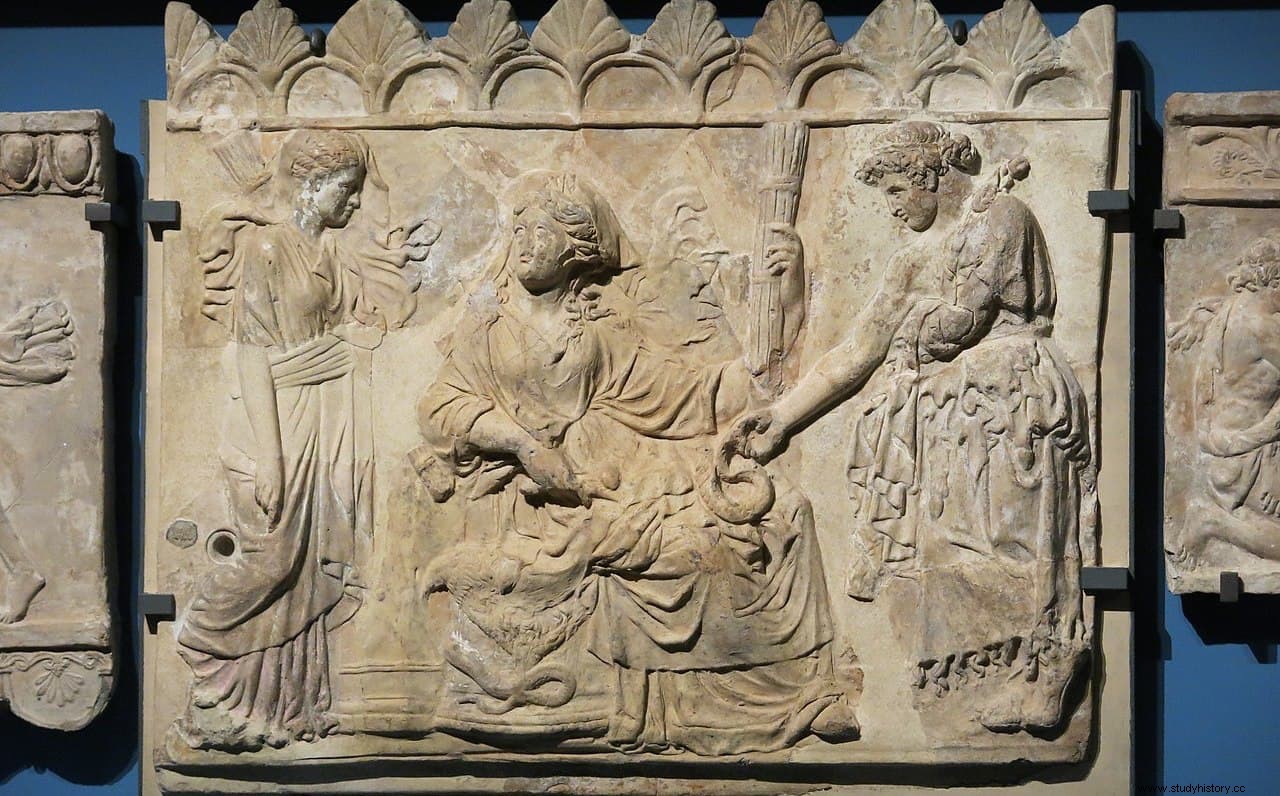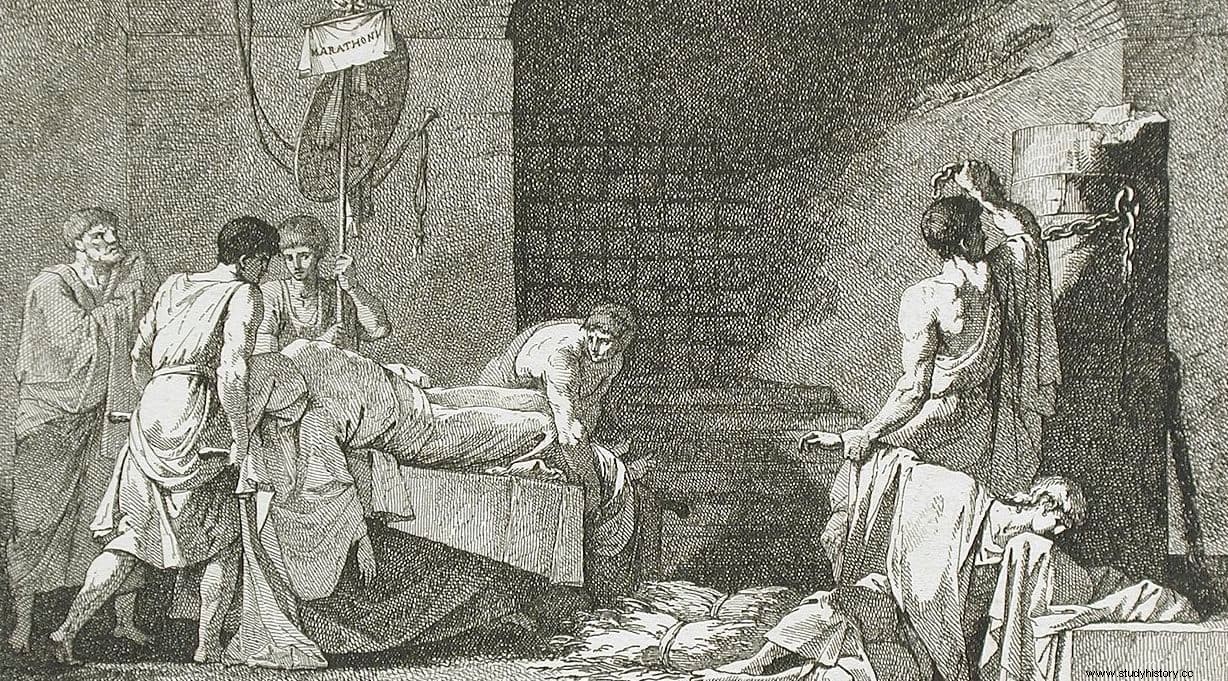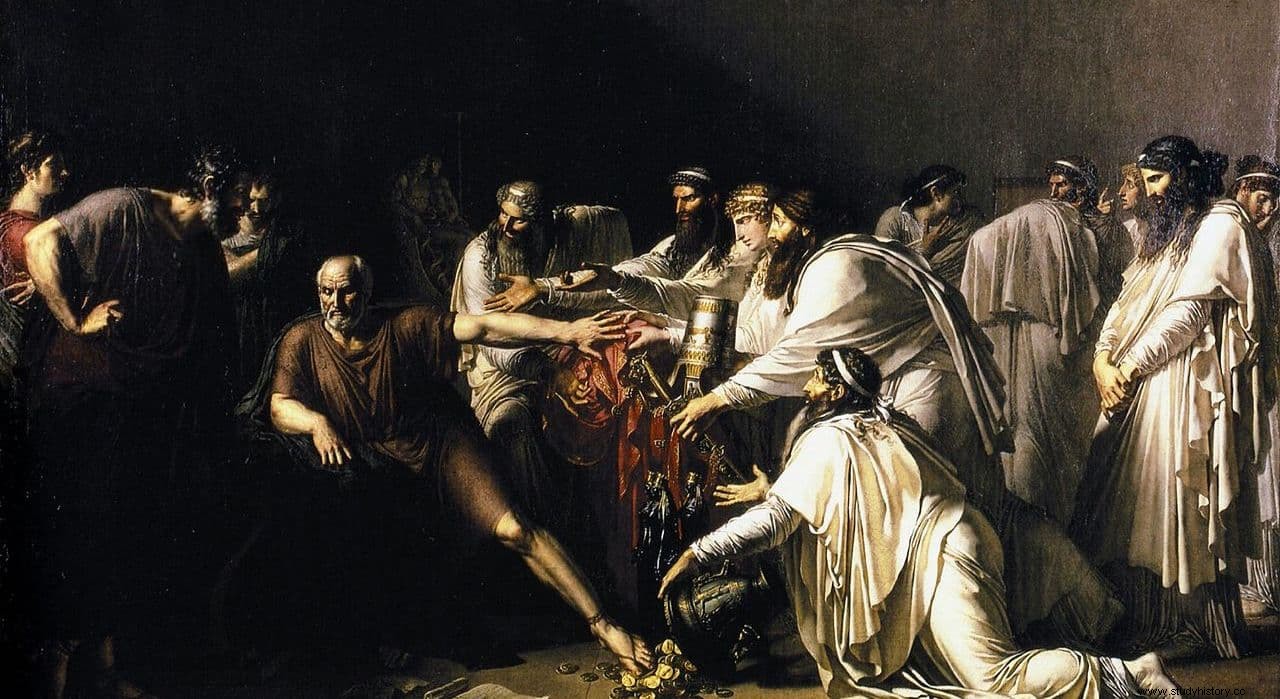Around the year 511 B.C. Calias (called Callias II to distinguish him from his grandfather and grandson, both of the same name) was born in Athens into a wealthy eupatrid family (the nobility of the Attica region and the highest social class, above demiurges and geomoros) enriched with the management of slaves in the mines of Laurión. So much so that Callias was considered the richest man in town.
When he was 21 years old he went along with the Athenian contingent to fight in the Battle of Marathon (490 BC), where he dressed as a priest. It was not an extravagance of his, because at that time he was daduchos of the Eleusinian Mysteries, and it is possible that religious attire was added to his military equipment.
Duchs (literally, the torch bearer) was the title given to the second priest of the Eleusinian Mysteries, second only to the Hierophant , and it was a hereditary trade that passed from father to son. His job was to embody the Sun, purify the adepts before initiation, and lead the torchlight race, which mimicked Persephone's search for her mother Demeter.

But being dressed in that guise came in very handy to increase his fortune, because seeing everything lost, a Persian soldier thought that by his appearance he must be a kind of king and, to buy his life, he pointed out where he had hidden a lot of gold and silver that the Persians carried with them. Callias allowed himself to be bribed, but once he found the gold, he ended the life of the unhappy Persian.
It seems that it was a known fact in Athens and that is why comedy writers used to ridicule his family by calling them something like pit rich .
However, his status among the citizens of the polis is well reflected by his marriage. He married Elpinice, who was the daughter of none other than Miltiades, the victorious strategist at Marathon. It seems that in exchange for the marriage she offered to pay the fine of 50 talents that the people had imposed on Miltiades for not having taken the island of Paros in 489 BC. The strategos would die in prison, and the fine would be paid later by his son Cimón, with the money of Callias.

Despite the fact that by this marriage he was the brother-in-law of Cimón, the main political opponent of Pericles, Callias did not hesitate to support and finance him. Pericles used him as an ambassador on numerous occasions.
Following the Athenian victory at Salamis in Cyprus, he was sent to Susa to negotiate an end to hostilities with the Persian king Artaxerxes I, where he concluded the treaty that ended the Persian Wars. By that agreement, Artaxerxes undertook not to send troops into the sea at a distance of more than three days from his own coast, and the de facto independence of the cities of Ionia was recognized. 
However, on his return to Athens, the citizens considered that what he had obtained was insufficient, they accused him of having been corrupted and bought by the Persian king and fined him 50 talents, a very considerable sum that was equivalent to about 300,000 drachmas (the average salary for a craftsman, for example, was 350 drachmas a year).
Callias died in the battle of Potidaea, where he was in command as strategist of the Athenian forces, in 432 BC, precisely the one with which Thucydides begins his account of the Peloponnesian War and in which the philosopher Socrates saved the life of his pupil. Alcibiades.
